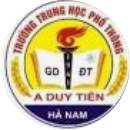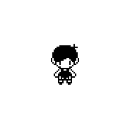is it important to obey traffic rule list 5 traffic rules you know

Những câu hỏi liên quan
Her brother went to school by bus but now he uses his motorbike.→ Her brother ________________________________________________________2. It is dangerous for you not to obey traffic rules.→ You should ________________________________________________________3. Long leaves his house at 7.00 a.m. and gets in his class at 8.00 a.m.→ It takes ___________________________________________________________4. The Carnival Festival often makes visitors excited.→ Visitors feel ________________________________...
Đọc tiếp
Her brother went to school by bus but now he uses his motorbike.
→ Her brother ________________________________________________________
2. It is dangerous for you not to obey traffic rules.
→ You should ________________________________________________________
3. Long leaves his house at 7.00 a.m. and gets in his class at 8.00 a.m.
→ It takes ___________________________________________________________
4. The Carnival Festival often makes visitors excited.
→ Visitors feel ________________________________________________________
5. He wants to drive motorbike but he is very young.
→ Although ________________________________________________________
Her brother went to school by bus but now he uses his motorbike.
→ Her brother ______used to go to school by bus but now he uses his motorbike.____
2. It is dangerous for you not to obey traffic rules.
→ You should _____obey traffic rules.___
3. Long leaves his house at 7.00 a.m. and gets in his class at 8.00 a.m.
→ It takes _____Long an hour to get to his class________
4. The Carnival Festival often makes visitors excited.
→ Visitors feel ____________excited about the Carnival Festival_______
5. He wants to drive motorbike but he is very young.
→ Although _______he is very young, he wants to drive motorbike_______
Đúng 2
Bình luận (0)
Her brother went to school by bus but now he uses his motorbike.
→ Her brother ______used to go to school by bus but now he uses his motorbike.____
2. It is dangerous for you not to obey traffic rules.
→ You should _____obey traffic rules.___
3. Long leaves his house at 7.00 a.m. and gets in his class at 8.00 a.m.
→ It takes _____Long an hour to get to his class________
4. The Carnival Festival often makes visitors excited.
→ Visitors feel ____________excited about the Carnival Festival_______
5. He wants to drive motorbike but he is very young.
→ Although _______he is very young, he wants to drive motorbike_______
nha
Đúng 1
Bình luận (0)
21. There used to be fewer people and __________ on the roads.A. roofs B. helmets C. helicopters D. vehicles22. Do you know the __________ in the UK is to keep to the left?A. traffic light B. traffic rule C. traffic jam D. speed limit23. It is dangerous to ride a motorbike without a __________A. helmet B. triangle C. tricycle D. circle24. In Hanoi, during rush hour, some road users ride their motorbikes on the __________A. driving licence B. lane C. pavement D. seat belt25. Traffic is terrible d...
Đọc tiếp
21. There used to be fewer people and __________ on the roads.
A. roofs B. helmets C. helicopters D. vehicles
22. Do you know the __________ in the UK is to keep to the left?
A. traffic light B. traffic rule C. traffic jam D. speed limit
23. It is dangerous to ride a motorbike without a __________
A. helmet B. triangle C. tricycle D. circle
24. In Hanoi, during rush hour, some road users ride their motorbikes on the __________
A. driving licence B. lane C. pavement D. seat belt
25. Traffic is terrible during the __________ when everyone is in a hurry to get to work or come back home.
A. traffic light B. road sign C. traffic rule D. rush hour
26. The __________ for motorcycles is 40 km/h in towns and 60 km/h outside urban areas.
A. speed limit B. driving licence C. traffic rule D. traffic light
27. You must __________ the traffic rules in order to avoid accidents.
A. park B. obey C. reverse D. warn
28. It takes us more than three hours to drive across those __________ roads.
A. wide B. safely C. right-handed D. bumpy
29. You need a driving licence to __________
A. drive a car B. ride a bike C. get on the bus D. get off the train
30. The large supermarkets in Vietnam often let you __________ free.
A. park B. obey C. warn D. find
31. Some vehicles beep when they __________ to warn those behind.
A. ride B. reverse C. drive D. sail
32. After school, children queue up and wait for the bus __________ on the pavement in front of the school.
A. safe B. bumpy C. safety D. safely
33. Because my school is close to my house, I go to school on __________.
A. foot B. bike C.car D. bus
34. I often go to work late because of __________.
A. berry jam B. traffic jam C. jam pot D. cherry jam
35. My father goes to work by driving a __________.
A. horse B. bicycle C. motorbike D. car
36. How __________ is it from here to the nearest supermarket? – It’s about 500 meters.
A. far B. long C. difficult D. nice
37. My English teacher, Mr. Nam, often drives his car __________ on the way to school.
A. careful B. caring C. carefully D. careless
38. It is about three kilometers from my house __________ the hospital.
A. with B. on C. in D. to
39. We must obey the traffic rules __________ our safety.
A. to B. for C. on D. into
40. __________ my way to school, there is a big supermarket.
A. On B. During C. At D. In
41. You should walk across the street __________ the zebra crossing.
A. on B. at C. in D. from
42. My house is not far from my school, so I usually go __________.
A. on foot B. by foot C. by car D. by boat
43. This morning, I was __________ in a traffic jam and got to school fifteen minutes late.
A. catch B. block C. struck D. stuck
44. Turn on the left turn __________ before you make the turn and slow down.
A. sign B. direction C. signal D. crossing
45. It is __________ to use a hand-held mobile phone while driving or riding.
A. safe B. important C. illegal D. careful
46. __________ does it take you to ride to school? – About 30 minutes.
A. How long B. How far C. How often D. How much
47. A __________ is a part of a road that only bicycles are allowed to use.
A. cycle cross B. cycle lane C. cycle line D. cycle race
48. You __________ cross the street when the light is red.
A. should B. don’t have to C. can D. mustn’t
49. People __________ produce as much rubbish as we do now.
A. use to B. used to C. used to not D. didn’t use to
50. Why didn’t you __________ the bus I told you? – Because I changed my route.
A. catch B. get C. give D. go
21. There used to be fewer people and __________ on the roads.
A. roofs B. helmets C. helicopters D. vehicles
22. Do you know the __________ in the UK is to keep to the left?
A. traffic light B. traffic rule C. traffic jam D. speed limit
23. It is dangerous to ride a motorbike without a __________
A. helmet B. triangle C. tricycle D. circle
24. In Hanoi, during rush hour, some road users ride their motorbikes on the __________
A. driving licence B. lane C. pavement D. seat belt
25. Traffic is terrible during the __________ when everyone is in a hurry to get to work or come back home.
A. traffic light B. road sign C. traffic rule D. rush hour
26. The __________ for motorcycles is 40 km/h in towns and 60 km/h outside urban areas.
A. speed limit B. driving licence C. traffic rule D. traffic light
27. You must __________ the traffic rules in order to avoid accidents.
A. park B. obey C. reverse D. warn
28. It takes us more than three hours to drive across those __________ roads.
A. wide B. safely C. right-handed D. bumpy
29. You need a driving licence to __________
A. drive a car B. ride a bike C. get on the bus D. get off the train
30. The large supermarkets in Vietnam often let you __________ free.
A. park B. obey C. warn D. find
31. Some vehicles beep when they __________ to warn those behind.
A. ride B. reverse C. drive D. sail
Đúng 1
Bình luận (2)
32. After school, children queue up and wait for the bus __________ on the pavement in front of the school.
A. safe B. bumpy C. safety D. safely
33. Because my school is close to my house, I go to school on __________.
A. foot B. bike C.car D. bus
34. I often go to work late because of __________.
A. berry jam B. traffic jam C. jam pot D. cherry jam
35. My father goes to work by driving a __________.
A. horse B. bicycle C. motorbike D. car
36. How __________ is it from here to the nearest supermarket? – It’s about 500 meters.
A. far B. long C. difficult D. nice
37. My English teacher, Mr. Nam, often drives his car __________ on the way to school.
A. careful B. caring C. carefully D. careless
38. It is about three kilometers from my house __________ the hospital.
A. with B. on C. in D. to
39. We must obey the traffic rules __________ our safety.
A. to B. for C. on D. into
40. __________ my way to school, there is a big supermarket.
A. On B. During C. At D. In
41. You should walk across the street __________ the zebra crossing.
A. on B. at C. in D. from
42. My house is not far from my school, so I usually go __________.
A. on foot B. by foot C. by car D. by boat
Đúng 0
Bình luận (0)
43 A
44 C
45 C
46 A
47 A
48 D
49 D
50 A
Đúng 0
Bình luận (0)
Choose the word or phrase that best completes each sentence below.6. All of us have to obey _____ strictly.A. traffic B. traffic rules C. traffic jam D. regular7. It is _____ for teenage under 18 to ride a bike in Vietnam.A. legal B. legally C. illegally D. illegal8. Yesterday Ba and Nga _____ round West Lake. It took them an hour.A. cycled B. cycle ...
Đọc tiếp
Choose the word or phrase that best completes each sentence below.
6. All of us have to obey _____ strictly.
A. traffic B. traffic rules C. traffic jam D. regular
7. It is _____ for teenage under 18 to ride a bike in Vietnam.
A. legal B. legally C. illegally D. illegal
8. Yesterday Ba and Nga _____ round West Lake. It took them an hour.
A. cycled B. cycle C. cycling D. cycles
9. We are waiting for the next bus _____.
A. to come B. come C. comes D. coming
10. Hurry up or we can’t _____ the last bus home.
A. keep B. follow C. go D. catch
11. Pete and Liz used to go to school _____.
A. by foot B. on foot C. by feet D. on feet
12. They really enjoy _____ the boat.
A. driving B. catching C. sailing D. riding
6. All of us have to obey _____ strictly.
A. traffic B. traffic rules C. traffic jam D. regular
7. It is _____ for teenage under 18 to ride a bike in Vietnam.
A. legal B. legally C. illegally D. illegal
8. Yesterday Ba and Nga _____ round West Lake. It took them an hour.
A. cycled B. cycle C. cycling D. cycles
9. We are waiting for the next bus _____.
A. to come B. come C. comes D. coming
10. Hurry up or we can’t _____ the last bus home.
A. keep B. follow C. go D. catch
11. Pete and Liz used to go to school _____.
A. by foot B. on foot C. by feet D. on feet
12. They really enjoy _____ the boat.
A. driving B. catching C. sailing D. riding
Đúng 2
Bình luận (0)
All passengers must obey the traffic rules strictly.
A. The traffic rules must to obey strictly by all passengers.
B. The traffic rules must obey strictly by all passengers.
C. The traffic rules must be obeyed strictly by all passengers.
D. The traffic rules must obeyed strictly by all passengers.
Xem thêm câu trả lời
Choose the word or phrase that best completes each sentence below.6. All of us have to obey _____ strictly.A. traffic B. traffic rules C. traffic jam D. regular7. It is _____ for teenage under 18 to ride a bike in Vietnam.A. legal B. legally C. illegally D. illegal8. Yesterday Ba and Nga _____ round West Lake. It took them an hour.A. cycled B. cycle C....
Đọc tiếp
Choose the word or phrase that best completes each sentence below.
6. All of us have to obey _____ strictly.
A. traffic B. traffic rules C. traffic jam D. regular
7. It is _____ for teenage under 18 to ride a bike in Vietnam.
A. legal B. legally C. illegally D. illegal
8. Yesterday Ba and Nga _____ round West Lake. It took them an hour.
A. cycled B. cycle C. cycling D. cycles
9. We are waiting for the next bus _____.
A. to come B. come C. comes D. coming
10. Hurry up or we can’t _____ the last bus home.
A. keep B. follow C. go D. catch
11. Pete and Liz used to go to school _____.
A. by foot B. on foot C. by feet D. on feet
12. They really enjoy _____ the boat.
A. driving B. catching C. sailing D. riding
13. When the bus stop, the students say goodbye to the driver and _____.
A. walk on B. walk of C. get on D. get off
14. His father is a pilot and he has been _____ planes for 10 years.
A. flying B. fly C. flew D. flown
15. You are not _____ to drive to drive without buckling up.
A. allowed B. allowing C. allow D. allowance
16. We should _____ the street at the zebra crossing.
A. walk B. walk through C. walk on D. walk across
Choose the word or phrase that is CLOSEST in meaning to the underlined part in each of the following sentences.
17. You have to strictly obey traffic signals when riding on the road.
A. catch B. follow C. see D. observe
18. Hoian used to be a peace and quiet city.
A. peaceful B. lively C. crowded D. noisy
Choose the word or phrase that is OPPOPSITE in meaning to the underlined part in each of the following sentences.
19. Mr. Huy used to ride his motorbike dangerously.
A. riskily B. safely C. carelessly D. annoyingly
20. Hanoi is clean and peaceful.
A. quite B. restful C. noisy D. gentle
III. GRAMMAR
Choose the word or phrase that best completes each sentence below.
21. “_____ is it from your house to the nearest bus stop?” – “About 50 metres”.
A. How much B. How long C. How far D. How often
22. Linh and Long used to _____ their bikes in his spare time.
A. ride B. rides C. riding D. rode
23. It used to _____ me 45 minutes to go school by bus.
A. take B. takes C. took D. taking
24. I _____ a horse when I was young, but now I don’t.
A. ride B. have ridden C. used to ride D. was riding
25. _____ does it take to go from Hanoi to Ho Chi Minh city by plane? – About 2 hours
A. How much B. How many C. How long D. How far
26. _____ he use to sail a boat when he was 15?
A. Do B. Does C. Did D. Is
27. Lan _____ travel by plane, but now she travels by plane much.
A. used to B. doesn’t use to C. uses to D. didn’t use to
28. When there is a traffic jam, it _____ me a very long time to go home.
A. takes B. costs C. spends D. lasts
29. It is over 100 km _____ my hometown to Danang city.
A. in B. at C. on D. from
30. I _____ relax on Sundays. But Sunday is my busiest day of the week now.
A. used to B. didn’t use to C. use to D. don’t use to
Choose the underlined part that needs correcting in each sentence below.
31. There used to was much traffic in this area.
A B C D
32. How does our English teacher goes to work every day?
A B C D
33. Children must to learn about read safety.
A B C D
34. Did you used to go to school on foot?
A B C D.
35. It takes me 30 minutes riding from home to school.
A B C D
IV. READING
Read the passage and then decide whether these sentences are True (A) or False (B)
Traffic jams
For many years, Raze has been driving to work and back every weekday. Every morning, on his way to work, especially during the rush hour, the highways are usually crowded causing massive traffic jams. The situation is even worse in the evening when he drives home. All the traffic comes to halt whenever there is an accident or a car has broken down and blocks an entire lane. In the winter, particularly when it snows, multi-car accidents with injuries can take emergency paramedics and vehicles removers a number of hours to clear the road. When Raza is stuck in a heavy traffic jam, he listens to music on the radio to calm his nerves. His boos and his wife know that if he is late, he is probably stuck a traffic.
(Adapted from http://www.en.iscollective.com)
36. Raze has traveled to work by car.
A. True B. False
37. There are many traffic jams at the highways during the rush hours.
A. True B. False
38. There will be less traffic jams when he drives home.
A. True B. False
39. Broken-down cars that block the entire lane is one reason for traffic jams.
A. True B. False
40. When Raze is stuck in a heavy traffic jam, he will be angry.
A. True B. False
Read the following passage and choose the option (A, B, C or D) that best answers each of the questions below.
Stuck in traffic
Richard Ryan is stuck in traffic. There must be an accident somewhere up ahead because he’s been sitting in the same spot for the last few minutes. The cars aren’t moving at all. It looks like it’s going to be another slow commute.
Even though he left his house early to beat the traffic, if the cars don’t start to move soon, Richard will be late for a very important meeting. He has to meet with some lawyers who advising his company on a construction project. Richard is the president of a big company. It he’s late, he won’t get in trouble, but he hates to be late for anything.
(Adapted from http://www.learnamericanenglishonline.com)
41. What is Richard’s problem now?
A. He is stuck in traffic. B. He has a car accident.
C. His car breaks down. D. When he was 14 years old.
42. In paragraph 1, the word “commute” is closest in meaning to
A. pace B. toad C. movement D. travel
43. In paragraph 2, what does it mean by “to beat the traffic”?
A. to avoid traffic jams B. to travel safety
C. to drive on road D. to move slowly
44. In can be inferred from the second paragraph that
A. Richard is a lawyer
B. Richard has a high position in the company
C. Richard is hiring a groups of lawyer for his company
D. Richard has a trouble working with the lawyer
45. Richard hates
A. traffic jams B. working with the lawyers
C. being late for things D. driving his car
V. WRITING
Choose the sentence (A, B, C or D) that is closest in meaning to the root sentence or best combines the two given sentences.
46. Lan doesn’t play piano anymore.
A. Lan used to play piano.
B. Lan is playing piano.
C. Lan didn’t use to play piano.
D. Lan wasn’t playing piano.
47. I don’t have time to collect stamps as when I was in primary school.
A. I don’t use to collect stamps when I was in primary school.
B. I didn’t use to collect stamps when I was in primary school.
C. I sued to collect stamps when I was in primary school.
D. I use to collect stamps when I was in primary school.
48. He is not a poor man anymore because he has becomes a rich businessman.
A. He used to be a rich man.
B. He used to be a businessman.
C. He used to be a poor man.
D. He used to be a poor businessman.
49. My hair now is much longer than that in the past.
A. My hair is longer now than it in the past.
B. My hair was longer in the past.
C. My hair used to be shorter in the past.
D. My hair used to be longer in the past.
50. They didn’t use to go to the cinema every Sunday last year.
A. They didn’t often go to the cinema every Sunday last year.
B. They used to go to the cinema every Sunday last year.
C. They often went to the cinema every Sunday last year.
D. They didn’t go to the cinema every Sunday last year.
V. Rewrite the following sentences1. How far is it from London to Manchester? →What...?2. Road users should obey traffic rules strictly→Traffic...3. Be careful or you will fall off your bike. –→ If...4. John and his cousin are the same age. → John is as....5. Wastes from chemical factories have caused a lot of pollution. → A lot....6. Hiring a boat here is not difficult at all.→It....7. We began studying Spanish six months ago.→We have...8. My mother used to wash clothes by hand.→No longer...9....
Đọc tiếp
V. Rewrite the following sentences
1. How far is it from London to Manchester? →What...?
2. Road users should obey traffic rules strictly→Traffic...
3. Be careful or you will fall off your bike. –→ If...
4. John and his cousin are the same age. → John is as....
5. Wastes from chemical factories have caused a lot of pollution. → A lot....
6. Hiring a boat here is not difficult at all.→It....
7. We began studying Spanish six months ago.→We have...
8. My mother used to wash clothes by hand.→No longer...
9. A bus took us back to the hotel from the museum. →We got back...
10. It is illegal to ride a motorbike without a helmet.→ It is against...
1. What is the distance from London to Manchester?
2. Traffic rules should be obeyed strictly by the road users.
3. If you don't be careful, you will fall off your bike.
4. John is as the same age as his cousin.
5. A lot of pollution have been caused by the wastes from chemical factories.
6. It isn't difficult to hire a boat here. / It is easy to hire a boat here.
7. We have studied Spanish for six months ago.
8. No longer does my mother wash clothes by hand.
9. We got back to the hotel from the museum by bus.
10. It is against riding a motorbike without a helmet.
Đúng 3
Bình luận (2)
Complete the second sentence so that it has a similar meaning to the first sentence, using the word in bold given in brackets. Do NOT change the word given.1. It is dangerous for you not to obey traffic rules. (better) You ____________________________________________.2. This bike is 800,000 VND. That bike is 600,000 VND (different) The price ____________________________________________.3. The Carnival Festival often makes visitors excited. (about) Visitors _______________________________________...
Đọc tiếp
Complete the second sentence so that it has a similar meaning to the first sentence, using the word in bold given in brackets. Do NOT change the word given.
1. It is dangerous for you not to obey traffic rules. (better)
=> You ____________________________________________.
2. This bike is 800,000 VND. That bike is 600,000 VND (different)
=> The price ____________________________________________.
3. The Carnival Festival often makes visitors excited. (about)
=> Visitors ____________________________________________.
4. Dense population will affect the quality of life in a country. (effect)
=> Dense population ____________________________________________.
5. They have a three-month summer holiday. (lasts)
=> Their ____________________________________________.
1. You had better obey traffic rules to avoid danger.
2. The price of this bike is different from that bike.
3. Visitors get excited about the Carnival Festival.
4. Dense population has an effect on the quality of life in a country.
5. Their summer holiday lasts for three months.
Đúng 1
Bình luận (0)
1. It is dangerous for you not to obey traffic rules. (better)
=> You ____had better not obey traffic rules ________________________________________.
2. This bike is 800,000 VND. That bike is 600,000 VND (different)
=> The price ___of this bike is different from that bike_________________________________________.
3. The Carnival Festival often makes visitors excited. (about)
=> Visitors ___are often excited about the Carnival Festival _________________________________________.
4. Dense population will affect the quality of life in a country. (effect)
=> Dense population ___has an effect on the quality of life in a country_________________________________________.
5. They have a three-month summer holiday. (lasts)
=> Their ___summer holiday lasts three months_________________________________________.
Đúng 0
Bình luận (0)
Complete the second sentence so that it has a similar meaning to the first sentence, using the word in bold given in brackets. Do NOT change the word given.1. It is dangerous for you not to obey traffic rules. (better) You ____________________________________________.2. This bike is 800,000 VND. That bike is 600,000 VND (different) The price ____________________________________________.3. The Carnival Festival often makes visitors excited. (about) Visitors _______________________________________...
Đọc tiếp
Complete the second sentence so that it has a similar meaning to the first sentence, using the word in bold given in brackets. Do NOT change the word given.
1. It is dangerous for you not to obey traffic rules. (better)
=> You ____________________________________________.
2. This bike is 800,000 VND. That bike is 600,000 VND (different)
=> The price ____________________________________________.
3. The Carnival Festival often makes visitors excited. (about)
=> Visitors ____________________________________________.
4. Dense population will affect the quality of life in a country. (effect)
=> Dense population ____________________________________________.
5. They have a three-month summer holiday. (lasts)
=> Their ____________________________________________.
1. It is dangerous for you not to obey traffic rules. (better)
=> You _______had better not obey traffic rules_____________________________________.
2. This bike is 800,000 VND. That bike is 600,000 VND (different)
=> The price ____of this bike is different from that bike________________________________________.
3. The Carnival Festival often makes visitors excited. (about)
=> Visitors ____are often excited about the Carnival Festival________________________________________.
4. Dense population will affect the quality of life in a country. (effect)
=> Dense population _____will have an effect on the quality of life in a country_______________________________________.
5. They have a three-month summer holiday. (lasts)
=> Their ______summer holiday lasts three-month______________________________________.
Đúng 1
Bình luận (0)
Topic 1: TrafficWhat is your means of transport?Do you like it? Why?What is your favorite transport ? Why?Do you often obey traffic rules ?What do you often do when you get stuck in the traffic jam ? Topic 2: FilmsWhat is your favorite film?Why do you like it?What is it about?Where do you often watch film?When do you watch film ?Who do you often watch film with ? Topic 3: Festival around the worldWhat is your favorite festival?Why do you like it?What do you often do to prepare for festival?Where...
Đọc tiếp
Topic 1: Traffic
What is your means of transport?
Do you like it? Why?
What is your favorite transport ? Why?
Do you often obey traffic rules ?
What do you often do when you get stuck in the traffic jam ?
Topic 2: Films
What is your favorite film?
Why do you like it?
What is it about?
Where do you often watch film?
When do you watch film ?
Who do you often watch film with ?
Topic 3: Festival around the world
What is your favorite festival?
Why do you like it?
What do you often do to prepare for festival?
Where do you often go in the festival?
When is the festival?
Topic 4: Talk about how your city uses energy sources.
What kind of energy sources is your city using?
What is the most popular type of energy source in your city?
What are the benefits of energy sources in your city?
What may be problems from the use of energy sources in your city?
What do you think can save energy sources in your city?
Topic 5: Talk about travelling in the future
What kind of transports will we travel in the future?
Will there be traffic jams in the future?
What kind sources of energy will we need for vehicles in the future?
How fast will we travel in the future?
Do you like travelling by new vehicles in the future? Why?
Topic 6: Talk about an English-speaking country you have visited or you will visit.
What is the name of the country and its capital?
Where is the country?
What is its weather like?
What are its famous attractions?
What do you like most about this country?
ko chép mạng(được tham khảo)
làm đúng câu hỏi dùm mik nha thank you




























